
One of the greatest things about fragrances is that there are so many to choose from. However, this variety can often cause some confusion and leave you with fragrances that you do not like to wear. Not to mention a fragrance that doesn’t wear well on you. The art of wearing perfume is not a one-stop shop, one size fits all kind of deal.
In reality, the art of wearing perfume is very personal. Do you know that the same perfume can smell different to everyone? While a scent may smell nice on its own or on someone else, it may not smell the same on you.

The reason is that all of us have unique body chemistry which causes perfume scents to synergize differently on everyone’s skin. Since everyone’s skin condition is different, each fragrance will become a unique scent on different types of skin.
What is Body Chemistry?
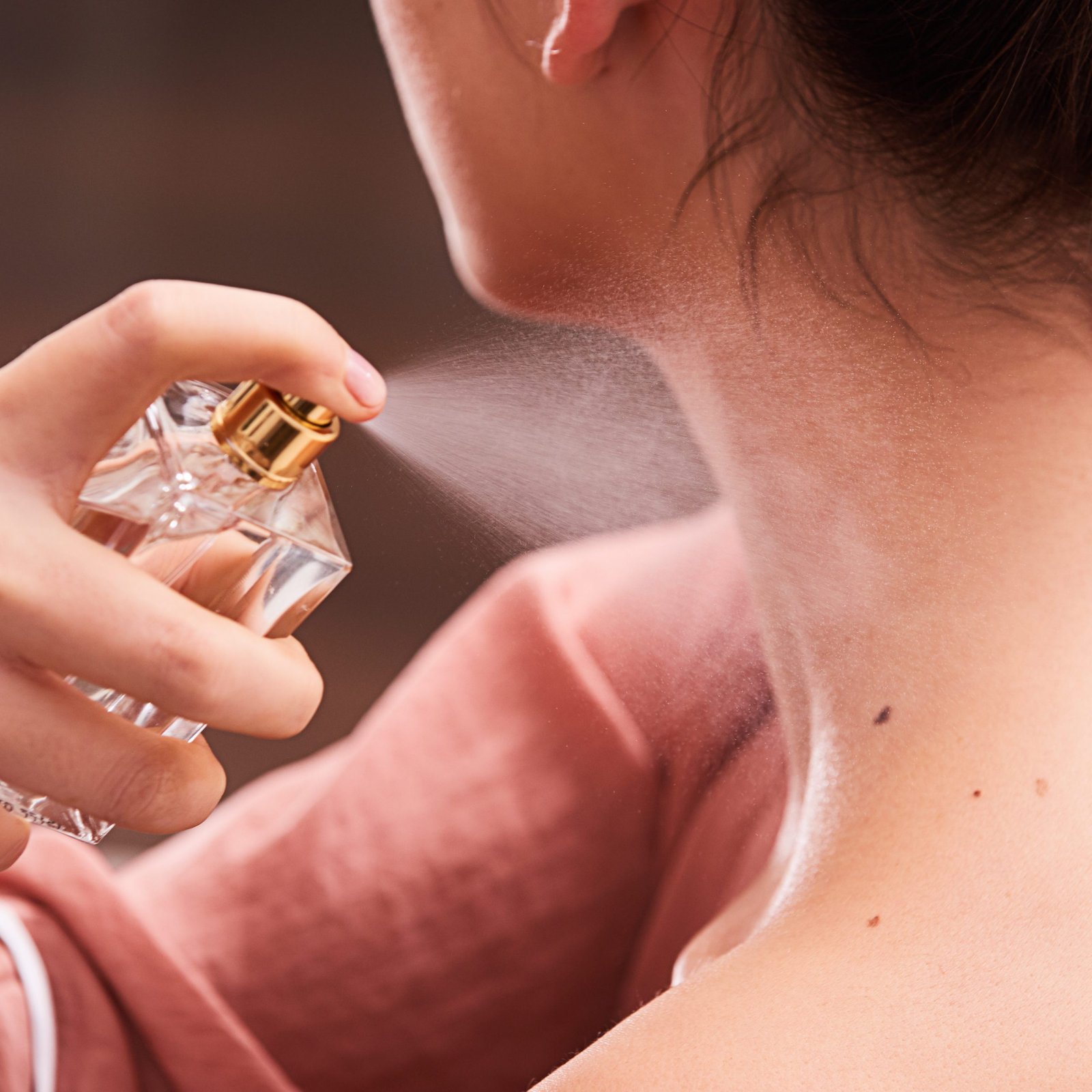
As Fragrance Lovers, we are dedicated to helping you discover the best scent for your unique skin type. Here are some factors to consider when selecting a fragrance for yourself.
How Do You Choose The Right Perfume For Your Body Chemistry?
Our body chemistry, heat, the oils, and even the bacteria on your skin play an important role that affecting how the perfume diffuses and reacts with your body, It also significantly influences the duration a perfume wears on you, as well as the specific notes that emanate from the fragrance upon contact with your skin. Forever changing, the factors mentioned above can vary from person to person and year to year.
A few factors come into play when thinking about how perfume works with your body’s unique chemistry.
- Skin Type-oily, dry, combination. First and foremost the most important thing that affects how a perfume smells on you is your skin type. And, there’s a simple rule of thumb to follow: is your skin dry, or oily? The oilier your skin is, the less perfume you need for the scent to be impactful, and the longer the scent will last.
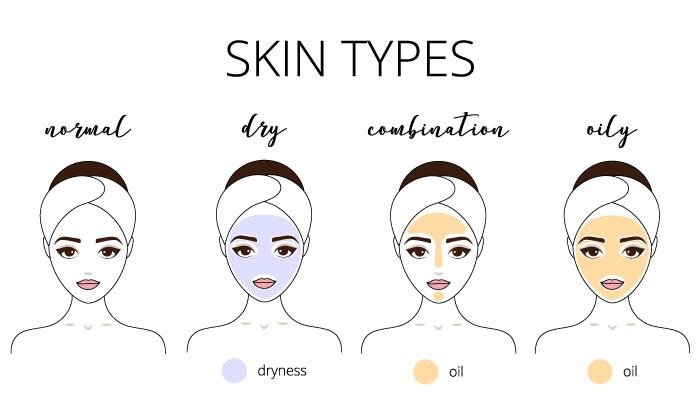
- Body Temperature- Keeping calm and paying attention to your mood can drastically help you know when to wear perfume and when to not. Your body heat is also a factor to account for. A hotter basal body temperature means the pay-off from your perfume will be more concentrated, and vice versa. So on warm days or days when your blood is boiling, your perfume may smell more intense.

- pH Level Of The Skin-Another thing you want to consider when selecting a perfume is the pH level of your natural skin. Generally speaking, the better balanced your skin’s pH levels are, the better perfume will adhere to your skin.
pH stands for “potential hydrogen”. pH levels explain the acid-to-alkaline ratio of something. If something has a pH of 1, it’s the most acidic. If it has a pH of 14, it’s the most alkaline.
To test the pH level of your skin, you should note how it feels after you wash it. If it’s smooth and soft, then that means your pH levels are in check. If it’s dry and tight, then that means your skin is too alkaline. If it’s slightly oily after you cleanse it, then that means it’s a bit too acidic.
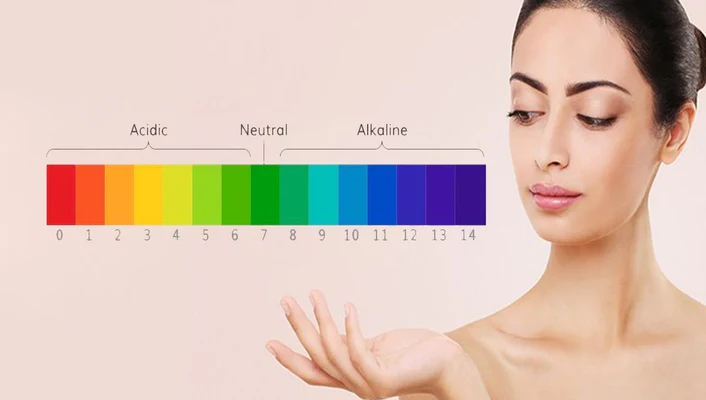
- Fragrance Notes- Fragrance notes are generally defined by 3 classes. Top/Head Notes: These notes evaporate first and are usually the first thing you will notice from a fragrance.Middle/Heart Notes: This is what you can smell more prominently after the top notes have evaporated. They are the “heart” of the fragrance. These notes help to mask the base notes, which become more pleasant with time.Base Notes: These are the notes that stick around the longest. These notes also partially determine a fragrance’s longevity depending on its composition. Base notes are typically the richest part of the fragrance.After determining your body chemistry, here are some factors to consider to choose a fragrance you ought to love!

- Fragrance Types-Scent families are broken up into four main categories: Floral, Oriental, Woody, and Fresh, each with its subfamilies. A scent family has distinctive characteristics and often individuals will gravitate towards one scent family over another when choosing personal fragrances.For this reason, it can be helpful to know which family you are attracted to before you go shopping for a new scent.

Tips To Choose The Right Fragrance For Your Body
To find out what fragrances you like, first, think about what smells you don’t like. What do you detest?
There are some basic guidelines on what scents tend to work best with certain body chemistries. If you have a sweet, floral, or fruity scent that you love but it just doesn’t seem to work for your body chemistry, don’t be discouraged.
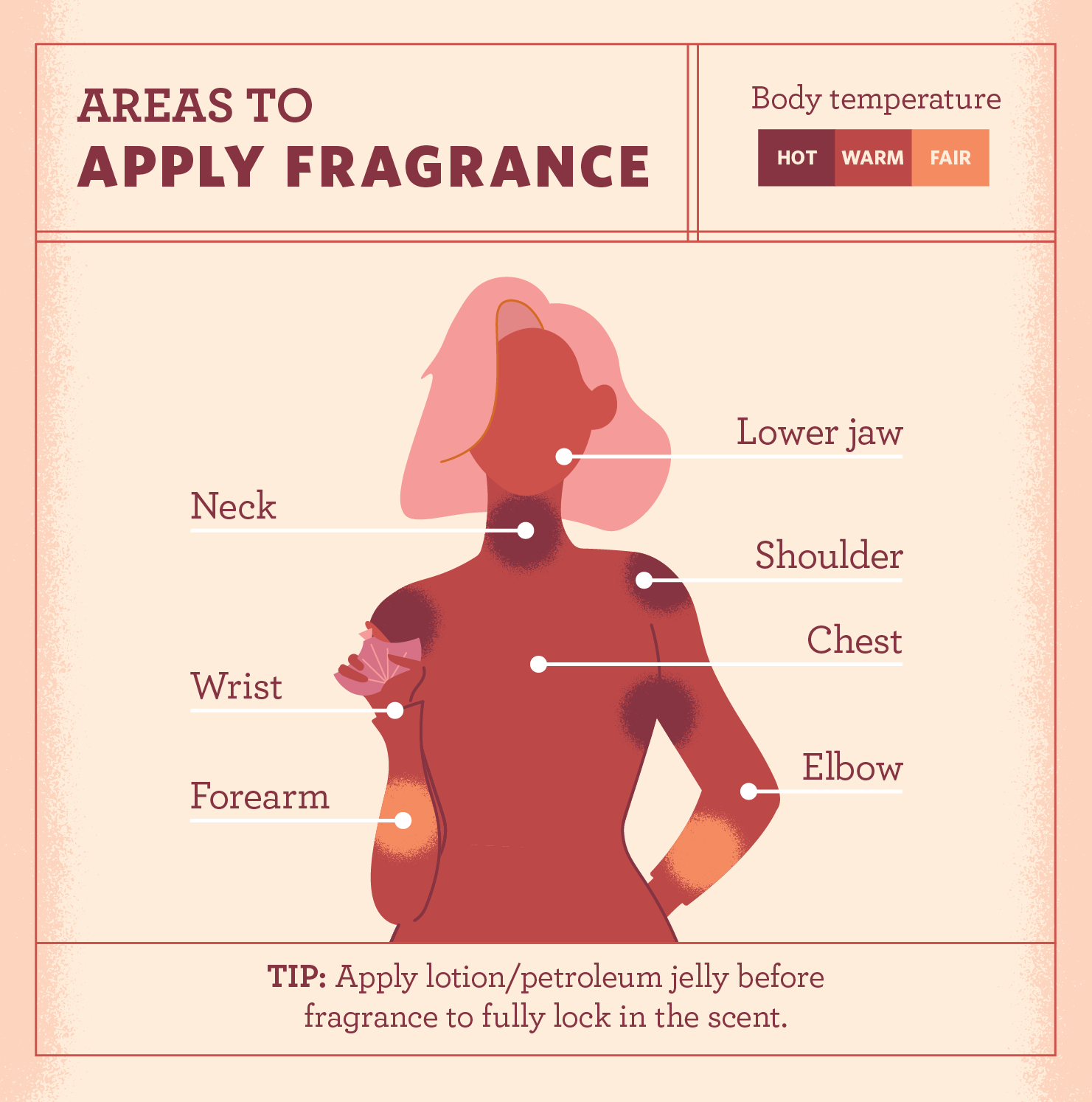
Now comes the fun part! Choosing a perfume-Spray different perfume into the air or onto a card just to smell their top notes. If you like a certain top note, put some on your wrist and sniff it again in 20 minutes (this will give you the middle note). If you like the base note when you smell it an hour later, then go ahead and buy the perfume.” When testing, take your time. Do not rush and let yourself get to know the perfume before buying.
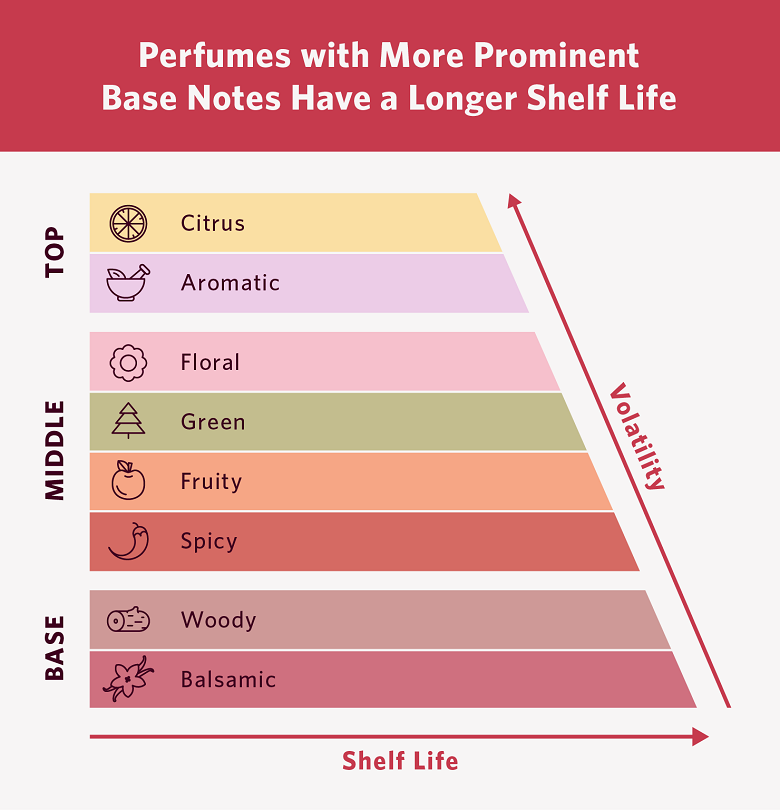
Make your perfume last longer, by spraying perfume on pulse points—your wrists, neck, and behind your ears. These are body chemistry warm spots where your body heat will make you smell amazing all day long! Happy shopping!





